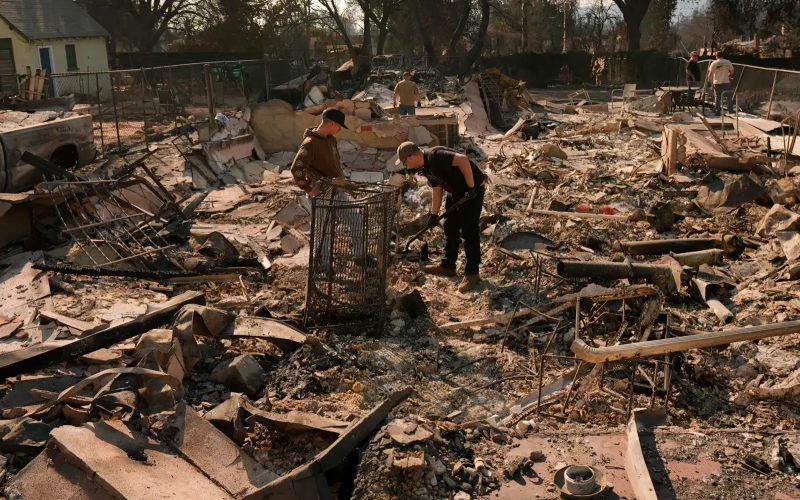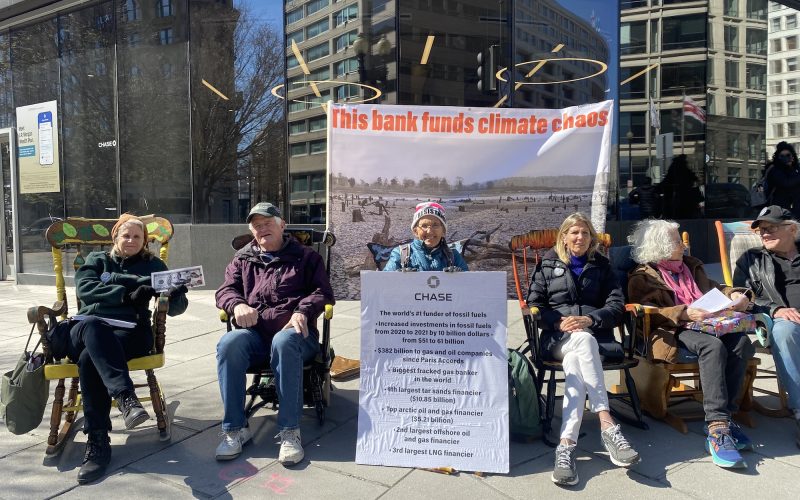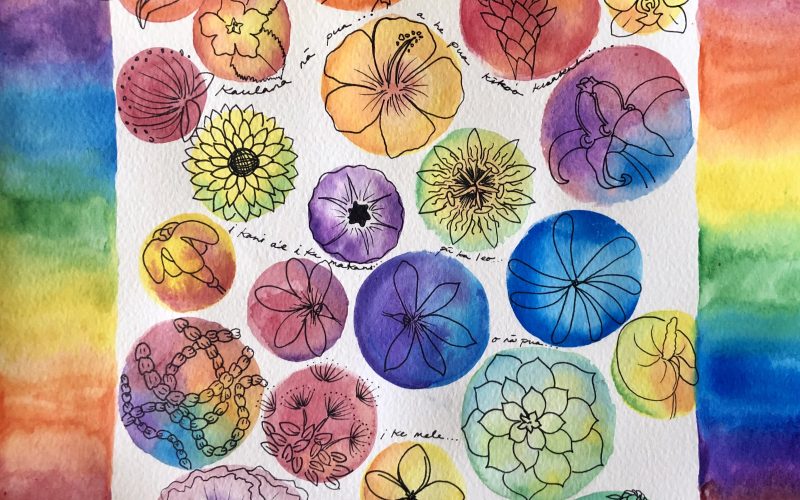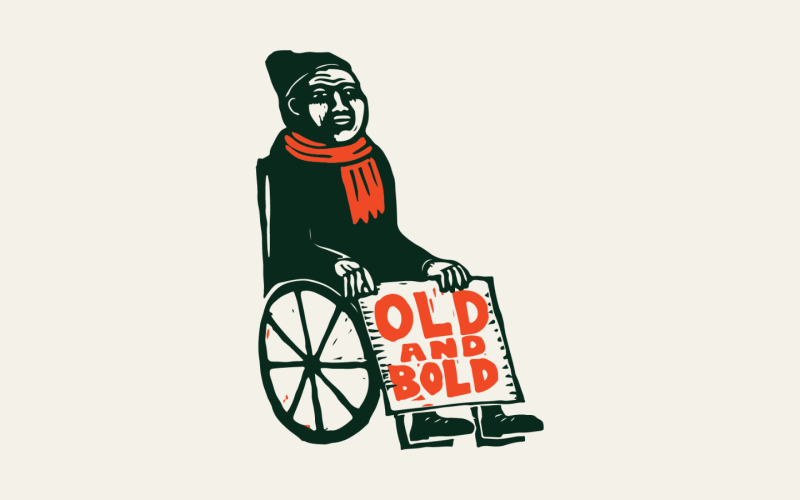Welcome to a new series featuring our very own Third Actors. As many of you have experienced first-hand, this group of people (70,000 and counting!) is incredibly unique. Third Actors bring with them significant experience, perspective, and oftentimes, an unexpected path to where they are today.
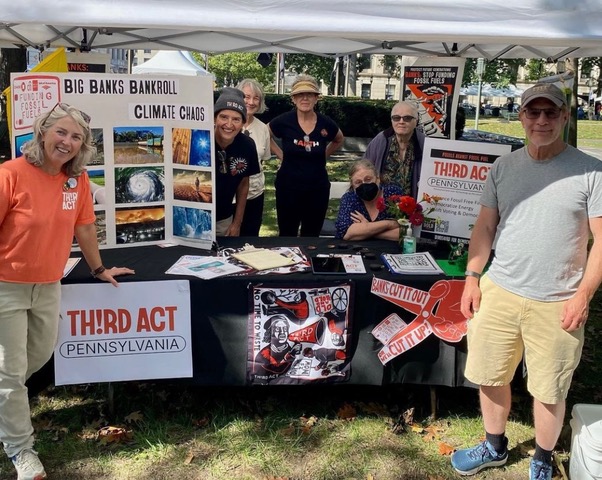
To begin, we spoke to Liz Evans, formerly of Third Act Pennsylvania, and now part of Third Act Upstate NY. She is also one of our lead national volunteers, assisting the Digital Communications team.
She spent the early part of her career in research biology and in the early 2000s, switched to educational technology, a developing field at the time. Her years teaching new tools and technologies have been useful during her time at Third Act. We talked about all she has learned and observed as she moves deeper into climate activism, organizing, and growing a community that works to protect its planet.
On the connections between education technology and Third Act
For over twenty years, I worked in higher education. My role was in learning management system support for the use of digital materials in courses or, as it later developed, online learning. I helped with the technology, but also, the development and training of faculty and students on using these new tools. There was a consortium of colleges sharing these systems and engaging in different kinds of collaborative learning programs.
How can you create a structure that allows people to work well together?
The challenge I faced earlier in my career which I’m also finding at Third Act is that you’re bringing a bunch of people together who have some common interests and tools, but also come from different places with different levels of engagement and capability. How can you create a structure that allows them to work well together?
On taking the lead
When I joined the group, I had the digital communication skills to offer. And at the time, I thought of it as a support role rather than a leadership one. But as with any early organization, there is a need for people to wear different hats. I ended up taking the lead on a few events and eventually, became the co-liaison for Advanced Fossil Free Finance. Now I’m also a national volunteer and joining Upstate NY.
You know, in the beginning, I didn’t even know the terminology. I was like, what exactly is a campaign? I’m used to thinking of it as a political campaign, but in the activism space, a campaign means a particular thing. I’m still curious about organizing. We have a group for organizing – what does it mean to organize people?
It was all really unfamiliar to me, but as time goes on, I learn more and more.
On campaign strategies
There are different points of leverage that you could think of trying to influence: elected officials, individual consumer behavior, demonstrations in the street, putting pressure on the banks, All of these are strategies the movement collectively has experimented with.
I remember Deborah Moore once said, people say: well, why are we working with the banks? They’ll never do what we want them to do. She replied: if it was easy to do, we would have already done it.
We’re trying to do something really hard and it is frustrating because change is so slow and you don’t know what’s going to work until something does work. You do just have to try a mix of different strategies and efforts and then over time, you see some of them break through.
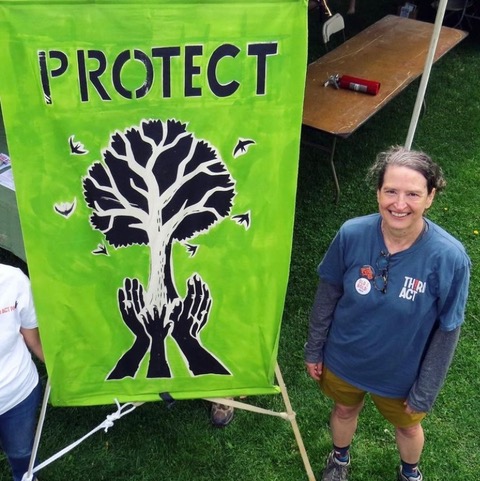
On teaching elders to use new tools
People are used to working with certain tools or some things are simply outside their experience. If you’re trying to introduce something new, you have to provide a pathway to enter an area that may be really unfamiliar. It’s not that older folks are completely untechnical; you just can’t expect it to be automatic.
A lot of people are used to working with Microsoft Word and you might tell them there are reasons a collaborative organization like Third Act would want to use Google Docs instead. You can give them all the advantages and offer the resources, but some people are just never going to want to do that. You must have the willingness to embrace the range in the desire to change, but also nudge people to see the advantages of using the recommended tools and reminding them that we can help them get there.
You can have video tutorials, tip sheets, the whole works. But, sometimes, sitting down one-on-one with somebody and hearing their particular questions, is what does the trick.
That’s the fun of coaching to me: figuring out where somebody is stuck and how you can put things into terms that are going to unlock it for them. Then you start to see their motivation to want to figure out how to use this tool.
On creating opportunities for well-defined, purposeful contributions
The big challenge is to develop enough meaningful activities that people can take on in different bite-sized levels. If you say, we have this thing that needs to be done and we’ll hand you a premade packet, people seem very willing and happy. But if you ask, could you be on this committee and help us organize? It’s too open ended and people feel uncertain if they would be a good fit for it or what it really is they’re being asked to do. There is a drop-off there.
It’s really about figuring out work for volunteers that both contributes and meets different kinds of personalities and availability.
On bringing something different in your third act
I now bring the time, but also the maturity to offer what I have and be open to thinking in a new way or trying to tackle such a thorny problem to which there is no easy answer. Being able to live with that and be patient and just keep trying things. That’s something that I can do now, at my age, that I was not very good at in my earlier acts.
On asking yourself what you did for your grandchildren
When you retire, you have this question of filling up your time. There are all the things you know you’ll engage in, like family and travel and hobbies. But there’s certainly a motivation we all share of contributing to something greater.
Back to the classic phrase from Al Gore’s Inconvenient Truth: “Future generations may well have occasion to ask themselves, ‘What were our parents thinking? Why didn’t they wake up when they had a chance?’”
Like it or not, we’re faced with this devastating collapse of our planet. And ours is the generation that has to say: this is how we stepped up when we knew we had to act.
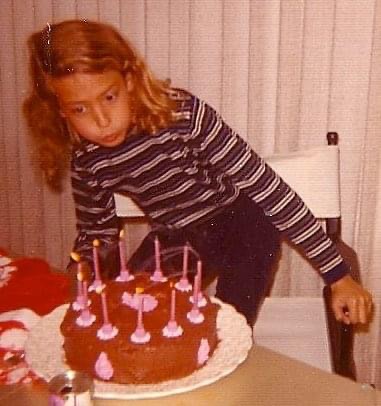
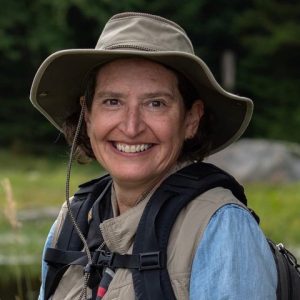
Liz Evans
Liz Evans grew up in California, with the rest of life unfolding in New York, Vermont, Hertfordshire UK, and most recently Pennsylvania. In school, Liz studied cell biology and genetics, did lab research for a couple decades, and continues to love any/all things biological. Eventually, she switched gears to work in educational technology. Liz joined Third Act the very second she heard about it – on or about her sixty-something-th birthday – serving as a communications co-coordinator and co-liaison with Third Act Pennsylvania.
Now due to life’s twists and turns (including a first grandchild!), Liz and family are moving back to the North Country. With this change of locale, Liz is thrilled to be starting a new gig with the Third Act National Volunteers Cohort on the Digicomms team.
